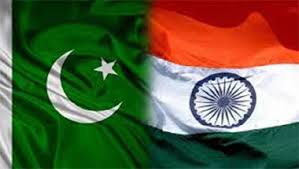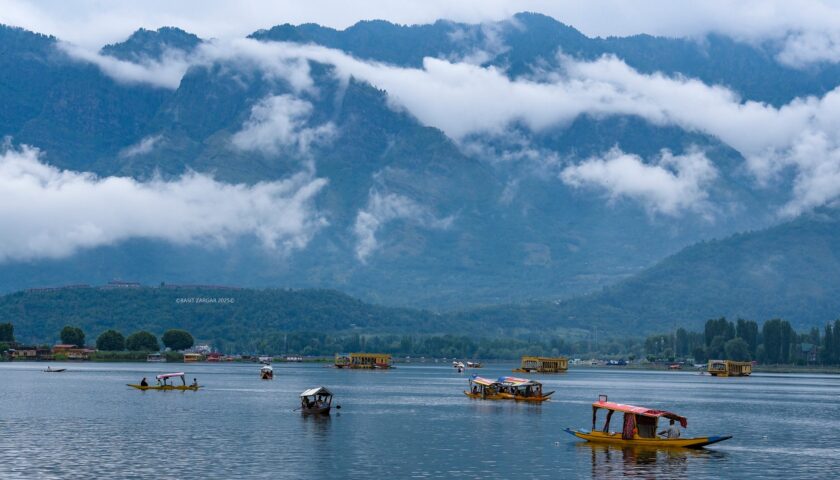The worst part is that both countries have chosen the beaten track of taking mutually exclusive positions.
GOWHAR GEELANI
External affair minister Sushma Swaraj, whose role has largely been hijacked by Prime Minister Narendra Modi, made a statement in her press conference on August 22 in New Delhi that made the All Parties Hurriyat Conference (APHC), the pro-freedom alliance of Kashmir more relevant than ever before.
 Swaraj in her widely watched and followed press conference said that since the 1972 Simla Agreement had committed India and Pakistan to resolve the Kashmir issue bilaterally, there was no room for a “third party like the Hurriyat”.
Swaraj in her widely watched and followed press conference said that since the 1972 Simla Agreement had committed India and Pakistan to resolve the Kashmir issue bilaterally, there was no room for a “third party like the Hurriyat”.
This statement is yet another shot in the Hurriyat’s arm, as it clearly acknowledges Hurriyat as a “third party” which internationalised the amalgam’s role as far as resolution of the Kashmir issue is concerned.
Swaraj went on to acknowledge that Pakistani leaders had met the Hurriyat in the past, but claimed India had never allowed such meetings to take place before bilateral talks between the two countries.
It is because of the Hurriyat Conference that the foreign secretary-level talks between India and Pakistan got cancelled last year and now it is again because of the Hurriyat that the India-Pakistan National Security Adviser (NSA)-level engagement stands cancelled.
Swaraj was, however, challenged by reporters on a point of fact — Pakistan’s former president Pervez Musharraf, for example, had met the APHC leaders in New Delhi on the eve of talks with the then Indian Prime Minister Atal Bihari Vajpayee in July 2001. She replied: “Raat gayi, baat gayi” (let bygones be bygones).
But the Pakistani foreign office, in its statement, said that meeting the APHC leaders “has been a long-standing practice” of Pakistani leaders visiting India during the past two decades. “It would be inappropriate for India to now impose the condition of changing this long-standing practice.”
Pakistan’s ministry of foreign affairs, in its official statement PR. No. 314/2015, said that after carefully analysing the contents of the press conference of the Indian minister for external affairs, Sushma Swaraj, Pakistan has “come to the conclusion that the proposed NSA level talks between the two countries would not serve any purpose, if conducted on the basis of the two conditions laid down by the minister.”
Swaraj had insisted that Pakistan should respect the Simla Accord and the spirit of the Ufa agreement and have to promise that Hurriyat and Kashmir will not be discussed.
“India will not discuss Kashmir until issues related to terrorism are discussed,” she said.
As a reply to Swaraj’s statement, the Pakistani foreign office statement said that “while the Indian minister accepts that to ensure durable peace between the two countries, there is a need to discuss all outstanding issues through a sustained dialogue process, started in 1998 as Composite Dialogue and renamed as Resumed Dialogue in 2011, she unilaterally restricts the agenda to only two items: creating an atmosphere free from terrorism and tranquility on the LoC (line of control).”
“… It is not reasonable for India to now assume the right to decide unilaterally that from now onwards, other issues will be discussed after terrorism has been discussed and eliminated,” the statement further said.
The worst part of the tragic Pakistan-India story is that both countries, instead of engaging with each other through a sincere and meaningful dialogue have chosen the beaten track of taking mutually exclusive positions, resulting in aborting a process that had been re-started in Ufa, Russia in July.
Dibyesh Anand, professor and head of the international relations department at London’s Westminster University, got so upset over the cancellation of Pakistan-India NSA-level talks, scheduled for August 23-24, that he used social media for catharsis.
“Good riddance — the talks between India and Pakistan called off. Both states can go back to being permanent enemies and the laughing stock of (the) international community. They give North Korea and South Korea a run for the money when it comes to manufactured hatred. Can the TV channels go back to suck blood out of some other issue?” Anand wrote on Facebook.
Since the Narendra Modi-led BJP formed the government in New Delhi in May 2014, India and Pakistan have hardly held deliberations on substantial issues of mutual interest, but both have uttered “Hurriyat” so many times that the pro-freedom conglomerate APHC has hogged international headlines yet again.
Interestingly, when Jammu and Kashmir chief minister Mufti Mohammad Sayeed addressed his first press conference after assuming charge on March 1 this year, he too talked “Hurriyat, Hurriyat and Hurriyat”. He thanked the Hurriyat for its “positive contribution” in ensuring smooth and relatively peaceful Assembly elections in 2014. Sayeed acknowledged that the Hurriyat has a viewpoint and said that having a dialogue with the Hurriyat was critical.
There is every reason for the Hurriyat Conference to rejoice and feel resurrected as one of the stakeholders and major players.
In Pakistan-India diplomatic drama and foreign policy fiasco, the APHC, as an amalgam of various pro-freedom political forces in Jammu and Kashmir, has emerged triumphant. If India-Pakistan diplomacy were a tennis match, it is clearly “Advantage: Hurriyat”.




